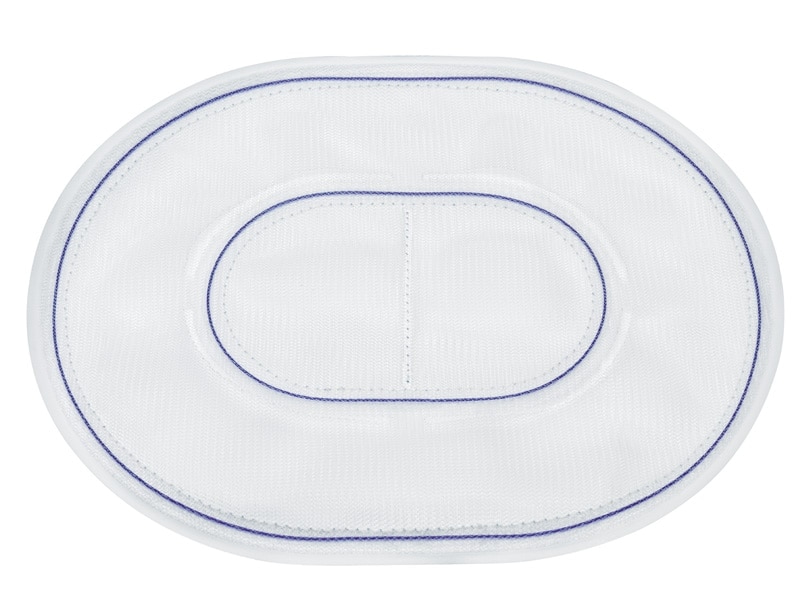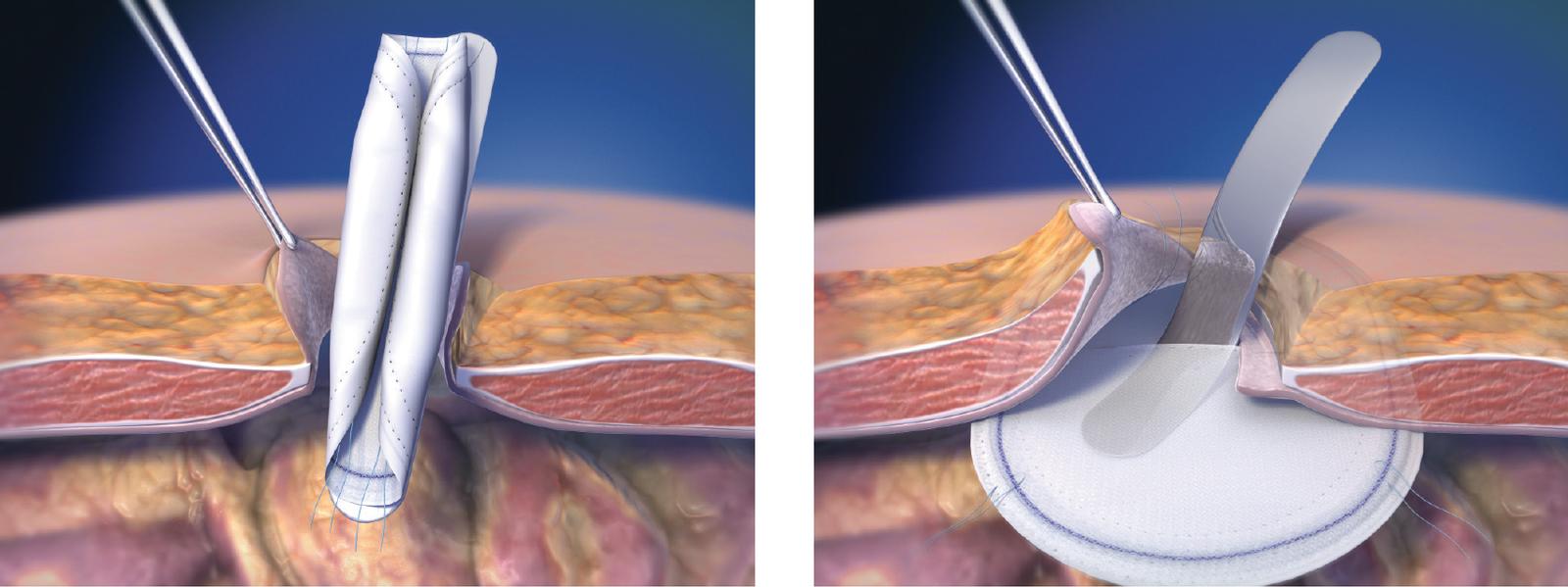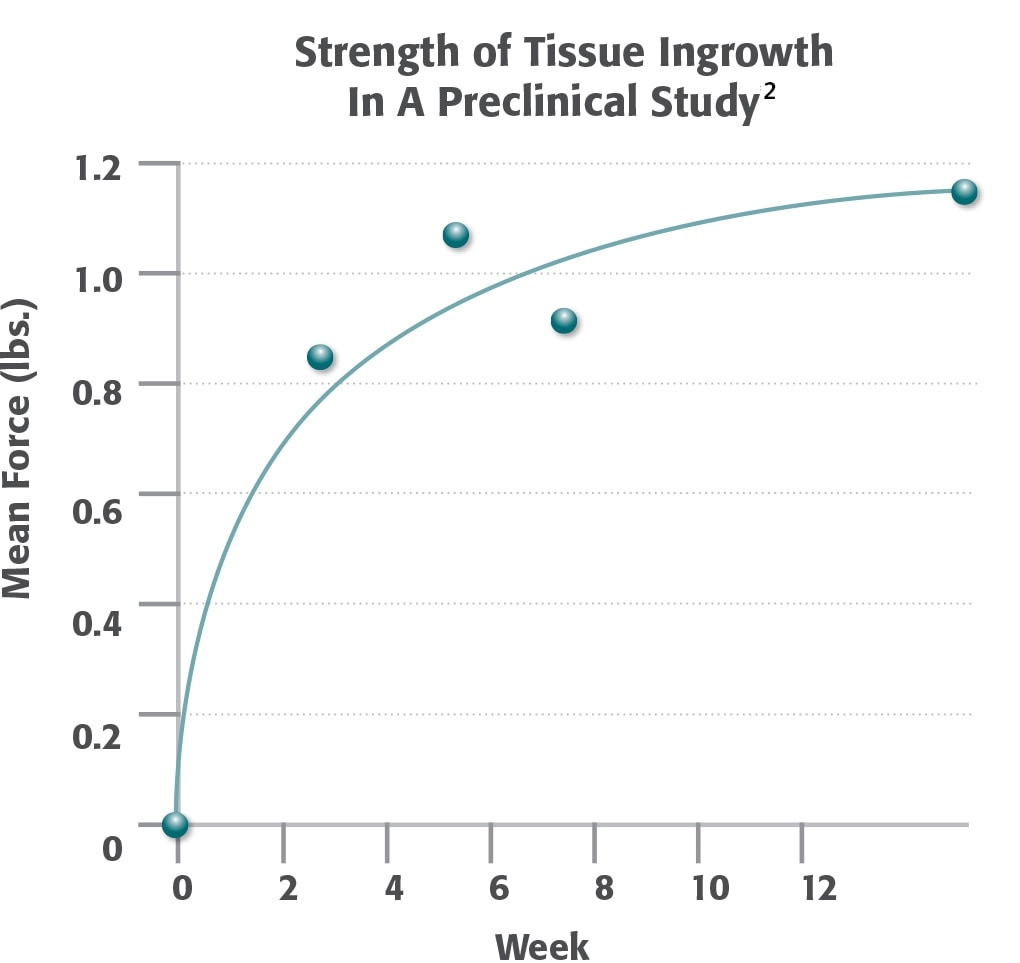1 Data generated in preclinical model. Data may not correlate to performance in humans.
2 Majercik, S. et al. “Strength in tissue attachment to mesh after ventral hernia repair with synthetic composite mesh in a porcine model.” Surg Endosc (2006) 20: 1671-1674.
INDICATIONS
The Ventrio™ Hernia Patch is indicated for use in the reconstruction of soft tissue deficiencies, such as for the repair of hernias.
CONTRADICTIONS
Literature reports that there may be a possibility for adhesion formation when the polypropylene is placed in contact with the bowel or viscera.
WARNINGS
1. Do not cut or reshape the Ventrio™ Hernia Patch, as this could affect its effectiveness. Care should be taken not to cut or nick the SorbaFlex™ PDO monofilament. If the SorbaFlex™ PDO monofilament is cut or damaged during insertion or fixation, additional complications may include bowel or skin perforation and infection.
2. Follow proper folding techniques for all patches as described in the Instructions for Use as other folding techniques may compromise the SorbaFlex™ PDO monofilament.
3. Ensure proper orientation; the solid white surface (ePTFE) must be oriented against the bowel or sensitive organs. Do not place the mesh surface against the bowel. There may be a possibility for adhesion formation when mesh is placed in direct contact with the bowel or viscera.
ADVERSE REACTIONS
Possible complications include seroma, adhesions, hematomas, inflammation, extrusion, fistula formation, infection, allergic reaction, and recurrence of the hernia or soft tissue defect. If theSorbaFlex™ PDO monofilament is cut or damaged during insertion or fixation, additional complications may include bowel or skin perforation and infection.
Please consult package insert for more detailed safety information and instructions for use.
BD-16948





